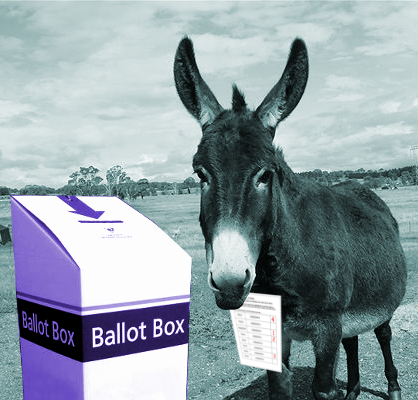Apathetic vs. Disengaged in race away from majors
 Not only are many Australians unhappy with the major political parties, their satisfaction with democracy itself has dropped too, a study shows.
Not only are many Australians unhappy with the major political parties, their satisfaction with democracy itself has dropped too, a study shows.
New research has found satisfaction with democracy has dropped from 86 per cent in 2007 to 72 per cent in June this year.
In addition, the number of people who thought it mattered which party was in power has plunged. Political apathy is down from 68 per cent to 43 per cent from 2007 to 2014.
The study was conducted by the Australian National University (ANU) in partnership with the Social Research Centre.
It appears the average person feels disassociated from the goings-on in the political sphere.
About 3 million eligible Australians have either failed to enrol to vote, did not show up this year or submitted an informal ‘donkey’ vote.
This means an alarming 20 per cent of the potential voting pool has simply opted-out.
The disenfranchisement is strongest among the younger, poorer, outer-metropolitan and rural demographics.
The ANU poll found record levels of pessimism about the future amongst Australians.
Just 30 per cent believe their lives will improve in the coming five years, and most believe their children's lives will be worse than their own.
Some are reading the results not as a move away from politics, but simply a rejection of the Labor/LNP dichotomy.
Recent elections have seen record votes for third parties and independents in the Senate, as well as a new group of voters backing the disruptive Palmer United Party.
The poll did show that Australians maintain strong confidence in institutions such as the courts, police, defence force and universities.
But Australians are not usually very confident in federal parliament, registering just six per cent confidence in 2014, compared to 10 per cent in 2008 and just five per cent in 2001.
Support for unions was also six per cent in 2014, compared three per cent in 2001.
Overall satisfaction with democracy was at 72 per cent, which was comparable with Germany, Japan and Canada, but lower than the United States (78 per cent) and Denmark (94 per cent).








 Print
Print